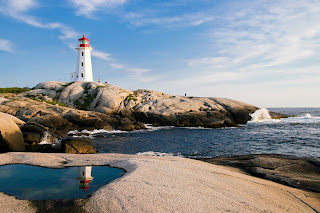The Faint Whiff of Change
In the last two weeks I've been struck by a growing awareness that something serious is underway in Antarctica. Three friends who have rarely, almost never, said much about the climate emergency wanted to talk about the South Pole.
What concerns them is the glacier, the Thwaites glacier. It's important to distinguish the Thwaites ice sheet from the Thwaites glacier. The ice sheet, about the size of Manhattan, floats. It's breaking loose which may cause a variety of problems - in the future. For now it won't have much impact on sea levels because, hey, it's already floating.
Think of the ice sheet as the cork in a bottle. Scientists warn that when the ice sheet goes that will probably speed up the loss of the Thwaites and nearby glaciers. As those slip off the land they will trigger a big rise in sea level. How much? Somewhere between 2 feet when the Thwaites glacier drops into the sea. Upwards of 10 feet if the surrounding glaciers also go.
At the moment the focus is on the Thwaites glacier.
The Thwaites Glacier in western Antarctica is the widest glacier on Earth, spanning approx 80 miles. It’s also melting and rapidly becoming more unstable.The glacier is known as the 'Doomsday Glacier’ because if it were to break up entirely, global sea levels would rise by 2+ feet. Its collapse could also trigger a string of glacial collapses in Antarctica, and if the surrounding glaciers were to fail with the Thwaites, global sea levels could rise by up to 10 feet.
Scientists with the International Thwaites Glacier Collaboration found that not only is warming water melting the Thwaites Glacier from below, but it is also loosening the glacier from its submerged seamount, making it that much more unstable. The scientists say that in as little as 3 years, the entire ice shelf could shatter 'like a car window.’
"And the problem with that is people will leave, where are they going to go? What are they going to do? When they leave, it won't happen instantly, but it'll happen fast enough," The TV personality continued. "This gets back to the old problem that we've been talking about for 30 years, where scientific concerns have not been heeded by governments, by people around the world."


"Separately, a bunch of enthusiastic scientists and engineers are commissioned by several countries to drill down to the base of glaciers and pump out the water that has been forming there due to warming conditions, causing massive glacier sliding into the sea. This also begins to have an impact on stabilizing glaciers in Antarctica."
ReplyDeletehttps://india.mongabay.com/2021/03/book-review-tackling-climate-crisis-the-science-fiction-way/
Unfortunately, science fiction probably won't fix our problems, NPoV.
Delete